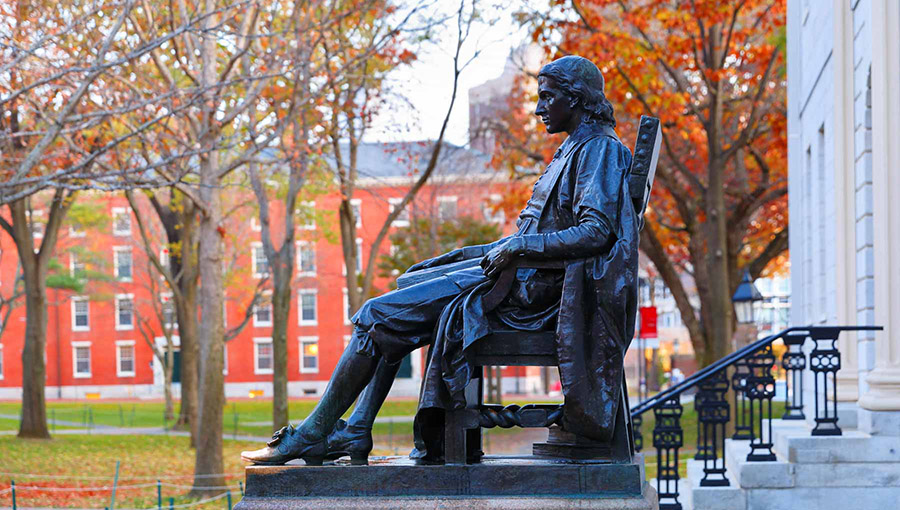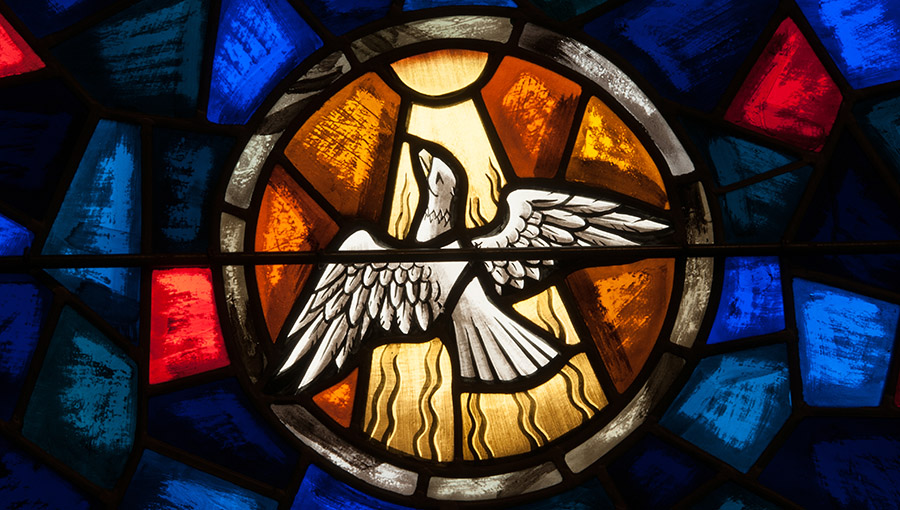Greg Epstein Is ‘Good Without God’
Harvard has appointed Greg Epstein as the new Chief Chaplain; he is an atheist. The hiring has elucidated ire from conservative institutions gawking at how someone who believes God does not exist could possibly be the president of such a spiritually-minded, albeit diverse, group of individuals. Meanwhile, others have congratulated Harvard for their willingness to represent their student body and acknowledge atheism as a valid spiritual pursuit.
 The Statue of John Harvard on the campus of Harvard University. The minister donated his library to the fledgling institution in the seventeenth century.
The Statue of John Harvard on the campus of Harvard University. The minister donated his library to the fledgling institution in the seventeenth century.
Epstein, who penned Good Without God, has led the humanist, atheist, and agnostics society on campus for years, even gathering weekly for a “non-religious” service in which they would sing and hear a “sermon” about living a good and moral life. Epstein’s roots go deep in the Harvard community as he has become a spiritual mentor and guide for many students who are wrestling with the meaning of life, how to think about morality, or whether they really believe the religion that they were raised with.
Though the appointment might seem alarming considering that Harvard was founded by pastors as a place where young men would grow in their love of God as well as their intellectual pursuits, Epstein was elected unanimously by the other Harvard chaplains. To them, Epstein represents someone who has mentored and cared for students during their spiritual plights, struggles with mental health, or family issues. Epstein also has a way of bringing the different faith backgrounds represented in the chaplaincy together.
Pete Williamson, who works for InterVarsity Christian Fellowship at Harvard and is also a chaplain, explains in this article for Christianity Today in more detail how the role effectively works on campus. Epstein’s appointment will last two years and he will not dictate “spiritual life” on campus.
Williamson states, “Chaplain presidents are chosen not to reflect whose tradition is ascendant, nor as a reward to the most influential chaplain. They are not an indicator of a bold new vision for the Harvard Chaplains. They get selected because they are trusted and competent members of our group.”
Moreover, Williamson points out that the Harvard chaplains represent a diverse group of spiritual backgrounds that independently serve students on campus without compromising on their individual faith doctrines.
“We are Harvard affiliates but generally not employees of Harvard. We do not report to any higher-ups on matters of faith or doctrine,” he said. “We share a primary commitment to treat each other’s communities fairly and honestly and a secondary, broader commitment to the spiritual needs of the people of Harvard. We are a consensus-based community, and consensus is often easily reached because no one is expected to agree on matters of doctrine.”
Christian Union has served students at Harvard through CU Gloria for over a decade, even hosting an annual fall debate between the humanist, atheist, and agnostic society and CU Gloria students. In the midst of increasingly secular and non-religious institutions, Christian Union works to meet students where they are in their faith, engage in the hard questions of faith and life, and ultimately pray that the Spirit would do the work only He can do in opening hearts to receive saving faith.
Read the full New York Times article here.



